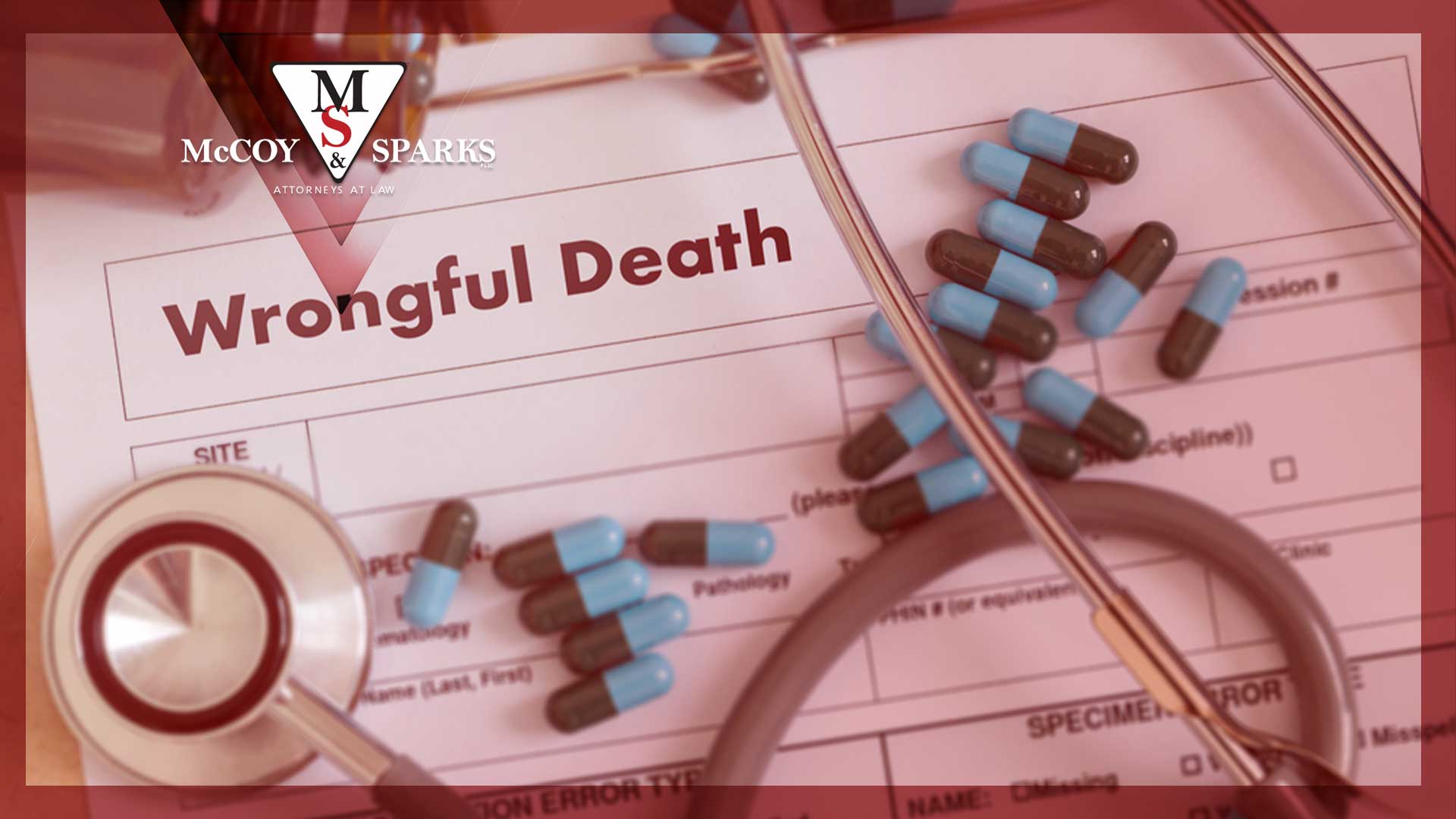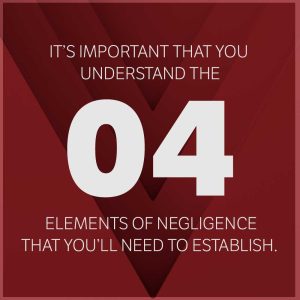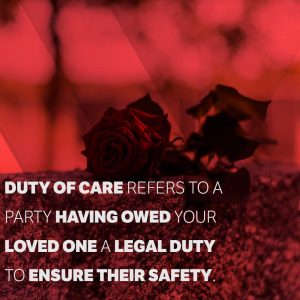
What you’ll learn from this article:
- Who is eligible to file a wrongful death lawsuit in Kentucky, including the order of compensation for family members if the personal representative is not a family member.
- How to prove Duty of Care, which may vary depending on the circumstances surrounding the loved one’s death, including examples such as auto accidents or government negligence.
- The process of proving Breach of Duty, with specific examples like drunk driving cases and the evidence required.

If you lost a loved one due to another party’s negligence or deliberate wrongdoing, no amount of money can adequately compensate you for your loss. However, you can file a wrongful death claim to hold the responsible person or company accountable and recover money for financial losses and hardship.
You can file a wrongful death lawsuit against the negligent party to recoup money for expenses, such as funeral and burial costs, as well as non-economic damages, like loss of consortium.
In this blog, you’ll learn all about proving your wrongful death case, and we’ll also educate you on who can file a wrongful death claim, the four elements of negligence, and the damages you may be able to recover.
Who Can File a Wrongful Death Lawsuit in Kentucky?
Kentucky law does not permit family members of the deceased to file a wrongful death claim. Instead, it’s up to the individual who represents the victim’s estate. Of course, if one of the family members is the personal representative, which is often the case, they can file a wrongful death claim.
While most family members will not be able to file a wrongful death claim, some will have the opportunity to recover damages. There is a strict order in which family members receive this compensation. Let’s break down what you can expect based on your relationship with the deceased:
- Surviving Spouse and No Kids: The spouse will receive all of the wrongful death compensation.
- Surviving Spouse and Kids: The children and spouse will split the compensation evenly.
- Surviving Kids and No Spouse: The children receive all of the compensation.
- No Spouse and Kids: The victim’s parents receive the compensation.
- No Spouse, Kids, or Parents: The compensation goes to any individuals listed in the victim’s will.
Wrongful Death and Negligence
Before we discuss how to prove that a party was responsible for your loved one’s death, it’s important that you understand the four elements of negligence that you’ll need to establish. These four elements of negligence are:
Duty of Care

Duty of care refers to a party having owed your loved one a legal duty to ensure their safety. For example, drivers owe a duty of care to others to operate their vehicles safely. Otherwise, they may cause harm to pedestrians, cyclists, passengers, or other motorists. Further, if your loved one was in a doctor’s care, the doctor had a duty to provide them with a certain standard of medical care. To recover compensation, you’ll need to be able to prove that the party owed the decedent a duty.
Breach of Duty
After showing that the responsible party had a duty to your loved one, you must then prove that they breached that duty in some way. Going back to the driving example, if a driver operates their car while intoxicated, they breached their duty to others on the road. Rather than driving with care, they willfully disregarded others’ safety.
Causation
Breach of duty isn’t enough to prove that a party was responsible for your loss. You also need to prove that their breach directly caused your loved one’s death. For example, it’s not enough for a drunk driver to have collided with another driver. They need to have caused the accident and the resulting tragedy.
Damages
Finally, you need to be able to prove that you suffered damages as a direct result of the negligent party’s actions. In wrongful death cases, damages can include funeral and burial costs, medical bills leading up to the victim’s death, pain and suffering, emotional anguish, loss of consortium, loss of income, and loss of a parent.
How Do You Prove Wrongful Death?
Now that you know the four elements of negligence, let’s unpack how you may go about proving them.
Proving Duty of Care
Establishing a duty of care will depend on the circumstances surrounding your loved one’s death. If they were killed in an auto accident, you’ll likely not have difficulty proving this duty. The other driver had a duty to keep others safe.
Other situations may not be as simple. For example, if they fatally crashed due to faulty roads or lack of street signage, you may need to establish that a government agency or municipality owed your loved one a duty of care to maintain safe driving conditions.
Sometimes you may not be sure who is at fault for your loved one’s death. In these situations, it’s best to contact a Kentucky wrongful death attorney who can help you navigate your case and identify the responsible party.
Proving Breach of Duty
You’ll need to be able to prove that the responsible party breached their duty in some way. For instance, if you lost a loved one due to the gross negligence of a drunk driver, you can prove they breached their duty of care through:
- A toxicology report
- The driver’s DUI
- Testimony from the reporting officers
- Previous DUI convictions
Proving Causation
Once you establish that the negligent party breached their duty, you’ll have to prove that the breach directly caused the death of your loved one. When it comes to drunk driving cases, you would establish that the drunk motorist caused the fatal accident through:
- Photos and videos of the crash’s aftermath
- The police’s accident report
- Dashcam and surveillance camera footage of the accident
- An autopsy report proving that the negligent party’s actions caused the victim’s death
- Eyewitness testimony
- Accident reconstruction experts
Proving You Suffered Damages
The final step in holding a negligent party financially responsible is providing sufficient proof that you suffered damages because of their negligence. In a wrongful death case, you can retain evidence of financial losses through:
- Receipts and invoices associated with funeral and burial costs
- Proof of the decedent’s income before their passing, such as tax returns
- Medical bills leading up to the victim’s passing
- Testimony from a mental health expert corroborating how the loss affected you emotionally, mentally, or psychologically
Contact a Kentucky Attorney for Your Wrongful Death Case
The sad reality is that many families struggle to recover fair compensation after a tragic loss. This is especially the case with more complex wrongful death situations, such as a loss caused by medical malpractice, nursing home abuse and neglect, product liability, and premises liability.
Fortunately, you can contact a Kentucky wrongful death attorney to help you recover money for funeral and burial costs, medical bills, loss of income, and other damages.
For experienced wrongful death lawyers, contact McCoy & Sparks Attorneys at Law. We’ll work to hold the negligent party accountable for their actions and recover the money you deserve. You can get a free case consultation today by calling us at 844-459-9467 or contacting us online.

